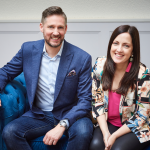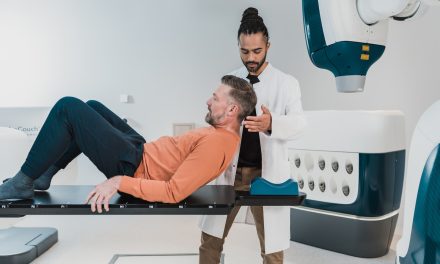What is neurodiversity?
Neurodiversity is still a relatively new term. You may not have heard of it before, or if you have, you may not know what it means. Yet, your team will very likely consist of neurodivergent employees so the need for understanding is paramount. Neurodiversity covers a range of neurological conditions including Autism, ADHD, Dyslexia, Dyspraxia and Tourette’s Syndrome.
The term was originally created to describe a new movement towards neurological diversity being accepted and respected in society. The dictionary definition of neurodiversity is: “The range of differences in individual brain function and behavioural traits, regarded as part of normal variation in the human population.”
Approximately 20% of the population is neurodiverse, so you already have neurodivergent employees, whether you know it or not. Of these, it is estimated that there are around 700,000 autistic people and approx. 2.6million people with ADHD in the UK.
Working environment
There are many things in an everyday workplace environment that might make life harder for autistic people or those with ADHD, that their neurotypical (that is non-autistic/ADHD) colleagues might not notice, or simply be able to ignore.
With only 16% of autistic adults in full-time employment and with most wanting to work more, businesses are missing out on a huge pool of talent. It’s important to remember that promoting neurodiversity in the workplace, shouldn’t just be a tick box exercise. Neurodiversity awareness and more importantly acceptance should run through the business from top to bottom.
Simple strategies
An extensive study into happiness and productivity from Oxford University’s Saïd Business School found that workers are 13% more productive when happy. Yet if you are autistic or have ADHD, feeling happy in the workplace may not come easily. Everything from lighting, smells, sounds and more can cause genuine anxiety.
Thankfully there are a number of simple strategies or adaptions that can be put into place to help neurodivergent employees and the whole workforce, often at zero financial cost.
Lighting
Office lighting can often be harsh and overbearing for an autistic person or someone with ADHD. Poor lighting can also be damaging to office productivity as a whole. Work environments that are too dark or too bright can lead to eye strain and headaches, leading to increased days off work. It’s no surprise that natural lighting used in office spaces can help relax employees and reduce stress levels and help with their circadian rhythm (natural body clock).
By making small and simple changes like adding desk and floor lamps or adding dimmer switches can help make the lighting much more bearable. Motion sensor lighting works well too and also can save money and energy on areas that aren’t used as much.
Food and smells
Many neurodivergent people can be very sensitive to smells. If you have sensory processing disorder, strong smells can cause genuine anxiety and stress. By making some simple changes, like ensuring that staff have a place to eat lunch away from their desk will really help. There is nothing worse than someone microwaving last night’s garlic pasta in the open plan kitchen. By making these simple changes, will ensure a happier workplace for everyone.
On time
For example, turning up late to a meeting might be a small annoyance for a neurotypical person, but might cause a great deal of stress to an autistic person who has carefully planned their day around it.
If you want to hold a meeting, don’t just spring it on someone. An autistic person will have planned their day meticulously and springing a meeting out of the blue can not only cause them to feel uncomfortable, it can actually ruin the whole day.
At work, situations do arise that can’t always be scheduled. But even giving a 10-minute warning or another time option can help. Simply asking ‘Are you free to chat in 10 minutes or can we catch up in an hour?’ gives the person a choice and lets them feel more in control.
Also, don’t be late. No-one likes to be kept waiting, but if you are late, do always apologise. Otherwise the person may not listen to anything during the meeting as they are so incensed and none of the information will be retained.
Taking time out
Some days can just be overwhelming whether you are autistic, have ADHD or are neurotypical. By having a quiet space for a person to decompress (autistic/ADHD or not), they can take stock of the day and recharge their batteries.
The fizzy Coke analogy is often used with autism. If a person is constantly feeling stressed they will fizz up. Maybe someone has sprung a deadline on them, someone else has eaten smelly foods or the office is too loud. This can cause them to fizz up and ‘explode’ like a Coke bottle that’s been shaken too much. This could be snapping at someone, saying something inappropriate or simply shutting down and being unable to respond. By allowing a quiet space to go and work, ensures that the person can ‘defizz’.
Call in the experts
If you want to make your workplace neurodiverse friendly and significantly healthier for neurodivergent employees, you can follow these simple and easy-to-implement strategies or you can also call in the experts.
It is widely recognised that having training by actual neurodivergent people is more beneficial as they truly understand the barriers at work. They understand how to unlock the potential in employees who are autistic or have ADHD, having both lived and learned experience of neurodiversity in the workplace.

Hester Grainger
Kelly & Hester Grainger are the co-founders of Perfectly Autistic, a neurodiversity consultancy. They have years of experience in different workplace cultures, including over 40 combined years in the corporate world. They are both neurodivergent and together run their neurodiversity consultancy working with organisations and education settings to help increase awareness, understanding and acceptance of neurodiversity and the benefits of having neurodiverse employees.










